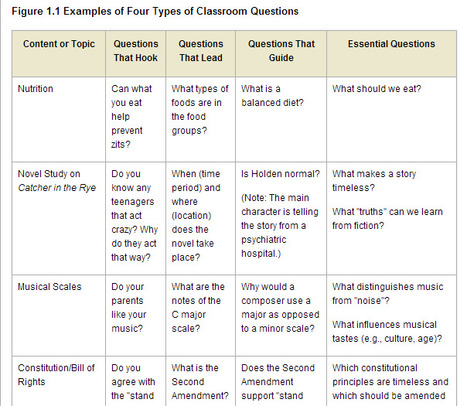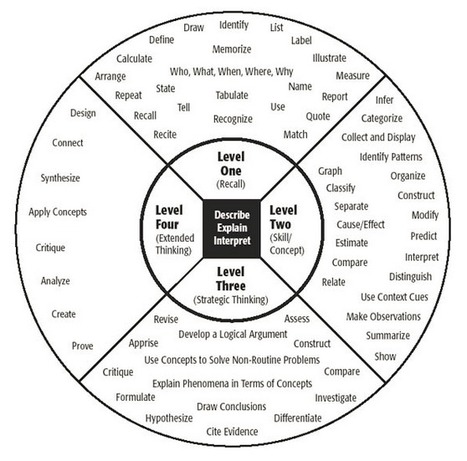"Teachers regularly pose questions to their students, but the purpose and form of these questions can vary widely. This book is about a particular kind of question—one we call "essential." So, what makes a question "essential"? Let us begin by engaging you in a bit of inquiry using the following concept-attainment exercise to examine the characteristics of an essential question. The exercise has three parts, as explained in the next several paragraphs."
Research and publish the best content.
Get Started for FREE
Sign up with Facebook Sign up with X
I don't have a Facebook or a X account
Already have an account: Login
Tech tools that assist all students to be independent learners & teachers to become better teachers
Curated by
Beth Dichter
 Your new post is loading... Your new post is loading...
 Your new post is loading... Your new post is loading...
|
|












"Teachers regularly pose questions to their students, but the purpose and form of these questions can vary widely. This book is about a particular kind of question—one we call "essential." So, what makes a question "essential"? Let us begin by engaging you in a bit of inquiry using the following concept-attainment exercise to examine the characteristics of an essential question. The exercise has three parts, as explained in the next several paragraphs."